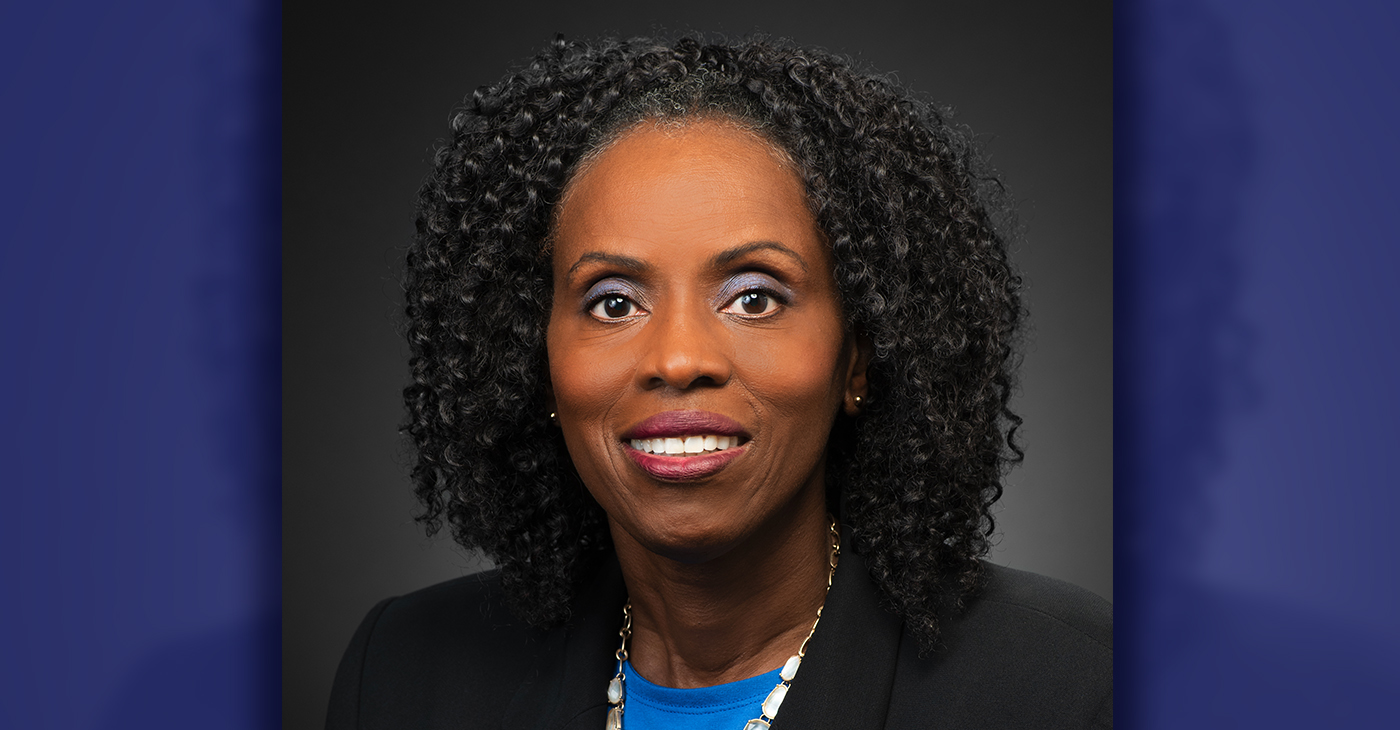#NNPA BlackPress
PRESS ROOM: Hear Her Campaign Addresses Health Inequities Among Pregnant and Postpartum People
NNPA NEWSWIRE — Many pregnant and postpartum people may feel ignored or dismissed when sharing their concerns, which may make them hesitant to ask questions or speak up. Not fully listening may cause healthcare providers to miss warning signs that require urgent care. Hear Her encourages partners, friends, family, and healthcare professionals to really listen when a person says something doesn’t feel right. Acting quickly could save their life.
The post PRESS ROOM: Hear Her Campaign Addresses Health Inequities Among Pregnant and Postpartum People first appeared on BlackPressUSA.

The Centers for Disease Control and Prevention (CDC)’s Hear Her campaign raises awareness of potentially life-threatening warning signs during and after pregnancy and encourages the people supporting pregnant and postpartum people to really listen when they express concerns.
By Wanda Barfield, MD, MPH, Director of the Division of Reproductive Health, CDC
Valencia, one of the women featured in the campaign, talked about her experience with a pregnancy-related complication. During her first pregnancy, Valencia struggled with headaches and dizziness. When she reported worsening symptoms, she felt like no one took her seriously. I didn’t know who to talk to and wasn’t sure how to speak up for myself,” she recalled. It was her primary care provider who finally helped her get the care she needed.
Valencia is among the many people who face serious health complications during and after pregnancy. CDC launched Hear Her to raise awareness of the potentially life-threatening warning signs during and in the year after pregnancy.
Too many people die from pregnancy-related complications each year. Tragically, four in five of these deaths could be prevented. There are considerable racial disparities when it comes to pregnancy-related deaths. Black and American Indian/Alaska Native women are two to three times more likely to die of pregnancy-related causes than white women.
A number of factors contribute to the maternal mortality rate among Black and American Indian/Alaska Native women. Structural racism and implicit bias can play a role in the disparity. For example, delayed prenatal care initiation is associated with personal experiences of bias and racism. Protective factors also do not seem to convey the same risk reduction for some minority populations. For example, we see persistent disparities in maternal mortality, regardless of educational attainment. In addition, access to quality care can be an issue. For example, it has been found that hospitals that disproportionately cared for Black women at delivery had increased poor outcomes for both Black and white women in those hospitals.
To address racial and ethnic disparities in maternal mortality, CDC supports the work of Maternal Mortality Review Committees around the country to get quality data about the circumstances surrounding a pregnancy-related death, including the documentation of bias, discrimination, and racism. These data are used by committees to make recommendations to prevent future pregnancy-related deaths and are also used by CDC to better understand maternal mortality across the nation.
A better understanding of pregnancy-related deaths can lead to identifying the initiatives that will have the most impact. Standardized quality care can ensure the right care in the right places at the right time for women. And high-quality care doesn’t end at delivery. It should extend into the postpartum period up to a year after delivery, when about a third of pregnancy-related deaths occur.
Many pregnant and postpartum people may feel ignored or dismissed when sharing their concerns, which may make them hesitant to ask questions or speak up. Not fully listening may cause healthcare providers to miss warning signs that require urgent care. Hear Her encourages partners, friends, family, and healthcare professionals to really listen when a person says something doesn’t feel right. Acting quickly could save their life.
For more information, visit cdc.gov/HearHer.
Wanda Barfield, MD, MPH, FAAP, is the Director of the Division of Reproductive Health (DRH) within the National Center for Chronic Disease Prevention and Health Promotion (NCCDPHP) at the Centers for Disease Control and Prevention (CDC).
The post PRESS ROOM: Hear Her Campaign Addresses Health Inequities Among Pregnant and Postpartum People first appeared on BlackPressUSA.
#NNPA BlackPress
Remembering George Floyd
#NNPA BlackPress
OP-ED: Oregon Bill Threatens the Future of Black Owned Newspapers and Community Journalism
BLACKPRESSUSA NEWSWIRE — Nearly half of Oregon’s media outlets are now owned by national conglomerates with no lasting investment in local communities. According to an OPB analysis, Oregon has lost more than 90 news jobs (and counting) in the past five years. These were reporters, editors and photographers covering school boards, investigating corruption and telling community stories, until their jobs were cut by out-of-state corporations.

By Dr. Benjamin F. Chavis, Jr.
President and CEO, National Newspaper Publishers Association
For decades, The Skanner newspaper in Portland, the Portland Observer, and the Portland Medium have served Portland, Oregon’s Black community and others with a vital purpose: to inform, uplift and empower. But legislation now moving through the Oregon Legislature threatens these community news institutions—and others like them.
As President and CEO of the National Newspaper Publishers Association (NNPA), which represents more than 255 Black-owned media outlets across the United States—including historic publications like The Skanner, Portland Observer, and the Portland Medium—l believe that some Oregon lawmakers would do more harm than good for local journalism and community-owned publications they are hoping to protect.
Oregon Senate Bill 686 would require large digital platforms such as Google and Meta to pay for linking to news content. The goal is to bring desperately needed support to local newsrooms. However, the approach, while well-intentioned, puts smaller, community-based publications at a future severe financial risk.
We need to ask – will these payments paid by tech companies benefit the journalists and outlets that need them most? Nearly half of Oregon’s media outlets are now owned by national conglomerates with no lasting investment in local communities. According to an OPB analysis, Oregon has lost more than 90 news jobs (and counting) in the past five years. These were reporters, editors, and photographers covering school boards, investigating corruption, and telling community stories, until their jobs were cut by out-of-state corporations.
Legislation that sends money to these national conglomerate owners—without the right safeguards to protect independent and community-based outlets—rewards the forces that caused this inequitable crisis in the first place. A just and inclusive policy must guarantee that support flows to the front lines of local journalism and not to the boardrooms of large national media corporations.
The Black Press exists to fill in the gaps left by larger newsrooms. Our reporters are trusted messengers. Our outlets serve as forums for civic engagement, accountability and cultural pride. We also increasingly rely on our digital platforms to reach our audiences, especially younger generations—where they are.
We are fervently asking Oregon lawmakers to take a step back and engage in meaningful dialogue with those most affected: community publishers, small and independent outlets and the readers we serve. The Skanner, The Portland Observer, and The Portland Medium do not have national corporate parents or large investors. And they, like many smaller, community-trusted outlets, rely on traffic from search engines and social media to boost advertising revenue, drive subscriptions, and raise awareness.
Let’s work together to build a better future for Black-owned newspapers and community journalism that is fair, local,l and representative of all Oregonians.
Dr. Benjamin F. Chavis Jr., President & CEO, National Newspaper Publishers Association
#NNPA BlackPress
Hate and Chaos Rise in Trump’s America
BLACKPRESSUSA NEWSWIRE — Tactics ranged from local policy manipulation to threats of violence. The SPLC documented bomb threats at 60 polling places in Georgia, traced to Russian email domains.

By Stacy M. Brown
Black Press USA Senior National Correspondent
The Southern Poverty Law Center has identified 1,371 hate and antigovernment extremist groups operating across the United States in 2024. In its latest Year in Hate & Extremism report, the SPLC reveals how these groups are embedding themselves in politics and policymaking while targeting marginalized communities through intimidation, disinformation, and violence. “Extremists at all levels of government are using cruelty, chaos, and constant attacks on communities and our democracy to make us feel powerless,” said SPLC President Margaret Huang. The report outlines how hard-right groups aggressively targeted diversity, equity, and inclusion (DEI) initiatives throughout 2024. Figures on the far right falsely framed DEI as a threat to white Americans, with some branding it a form of “white genocide.” After the collapse of Baltimore’s Francis Scott Key Bridge, a former Utah legislator blamed the incident on DEI, posting “DEI = DIE.”
Tactics ranged from local policy manipulation to threats of violence. The SPLC documented bomb threats at 60 polling places in Georgia, traced to Russian email domains. Similar threats hit Jewish institutions and Planet Fitness locations after far-right social media accounts attacked them for trans-inclusive policies. Telegram, which SPLC describes as a hub for hate groups, helped extremists cross-recruit between neo-Nazi, QAnon, and white nationalist spaces. The platform’s lax moderation allowed groups like the Terrorgram Collective—designated terrorists by the U.S. State Department—to thrive. Militia movements were also reorganized, with 50 groups documented in 2024. Many, calling themselves “minutemen,” trained in paramilitary tactics while lobbying local governments for official recognition. These groups shared personnel and ideology with white nationalist organizations.
The manosphere continued to radicalize boys and young men. The Fresh & Fit podcast, now listed as a hate group, promoted misogyny while mocking and attacking Black women. Manosphere influencers used social media algorithms to drive youth toward male-supremacy content. Turning Point USA played a key role in pushing white nationalist rhetoric into mainstream politics. Its leader Charlie Kirk claimed native-born Americans are being replaced by immigrants, while the group advised on Project 2025 and organized Trump campaign events. “We know that these groups build their power by threatening violence, capturing political parties and government, and infesting the mainstream discourse with conspiracy theories,” said Rachel Carroll Rivas, interim director of the SPLC’s Intelligence Project. “By exposing the players, tactics, and code words of the hard right, we hope to dismantle their mythology and inspire people to fight back.”
Click here for the full report or visit http://www.splcenter.org/resources/guides/year-hate-extremism-2024.
-

 #NNPA BlackPress3 weeks ago
#NNPA BlackPress3 weeks agoMLK Bust Quietly Removed from Oval Office Under Trump
-

 Activism4 weeks ago
Activism4 weeks agoOakland Post: Week of April 30 – May 6, 2025
-

 Activism3 weeks ago
Activism3 weeks agoOakland Post: Week of May 7 – 13, 2025
-

 #NNPA BlackPress3 weeks ago
#NNPA BlackPress3 weeks agoTrump Abruptly Fires First Carla Hayden: The First Black Woman to Serve as Librarian of Congress
-

 Activism2 weeks ago
Activism2 weeks agoNew Oakland Moving Forward
-

 Activism2 weeks ago
Activism2 weeks agoAfter Two Decades, Oakland Unified Will Finally Regain Local Control
-

 Activism2 weeks ago
Activism2 weeks agoOakland Post: Week of May 14 – 20, 2025
-

 Alameda County2 weeks ago
Alameda County2 weeks agoOakland Begins Month-Long Closure on Largest Homeless Encampment


















































